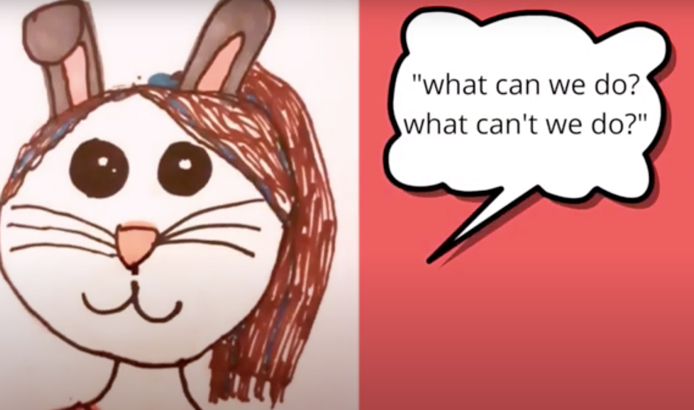Creating online participatory research spaces

Helen Lomax
Professor of Childhood Studies
HudCRES

Kate Smith
Senior Research Fellow
Just Futures Centre
In the context of the global crisis and the Covid-19 pandemic, children in the UK have been seen but not heard. As child-centred researchers who utilise participatory and creative approaches, at the start of the first lockdown in the UK (March 2020) we developed the Corona Chronicles with children to document and explore their everyday experiences, learning and wellbeing. However, research planning and fieldwork practices were severely challenged by the pandemic, particularly as policy directives and pandemic measures meant face-to-face research was not possible.
Our latest open access paper - Creating online participatory research spaces: Insights from creative, digitally-mediated research with children during the Covid-19 pandemic – is about how we developed and carried out research with children, reframing creative participatory methods for the pandemic and designing online research with children.
Written along with colleagues Ellie Brickwood, Jo McEvoy, and Kathrine Jensen at the University of Huddersfield and Visual Artist Belinda Walsh, we provide insights into supporting children’s creative engagement and their inclusion in online spaces. In responding to the ways that children have been marginalised and their voices silenced during the pandemic in the UK, our research considers how to listen to and support children to create rich, experiential visual and textual data about their lives.

Key Findings
Animation can offer a powerful way to engage children remotely
We created six bespoke digital animations to explain the aims of the research and communicate our child-centred approach to children. As well as being a first step in building rapport, each animation offered creative opportunities for participation, suggesting a variety of media that children could use to share their experiences.
Flexibility and choice
Offering a wide range of creative, arts-based approaches to children (including, but not limited to, drawing, poetry, photography, film and music) enabled children to participate in ways of their choosing, acknowledging them as experts in their own lives.
Online asynchronous communication
Walled, asynchronous platforms can, as part of participatory ethnographic research with children, offer a safe space for researchers to communicate and respond to children in the absence of opportunities to meet together in person.
Our findings offer ways for researchers to centre the experiences of children, offering a set of methods that can support children to articulate their views when for social, economic or reasons of geography or convenience (including children’s convenience) it’s not possible to meet with children face to face.
To cite: Lomax, H., Smith, K., Walsh, B., Jensen, K., McEvoy, J. & Brickwood, E. (2021) Creating online participatory research spaces: Insights from creative, digitally-mediated research with children during the Covid-19 pandemic. Families, Relationships and Societies (early view):1-19.
Find out more
For updates on our research, including the animation made with children and free resources for working creatively with children, please go to our website Back Chat: Developing arts-based methods of knowledge generation and exchange with children during times of global crisis and @LomaxHelen on twitter.